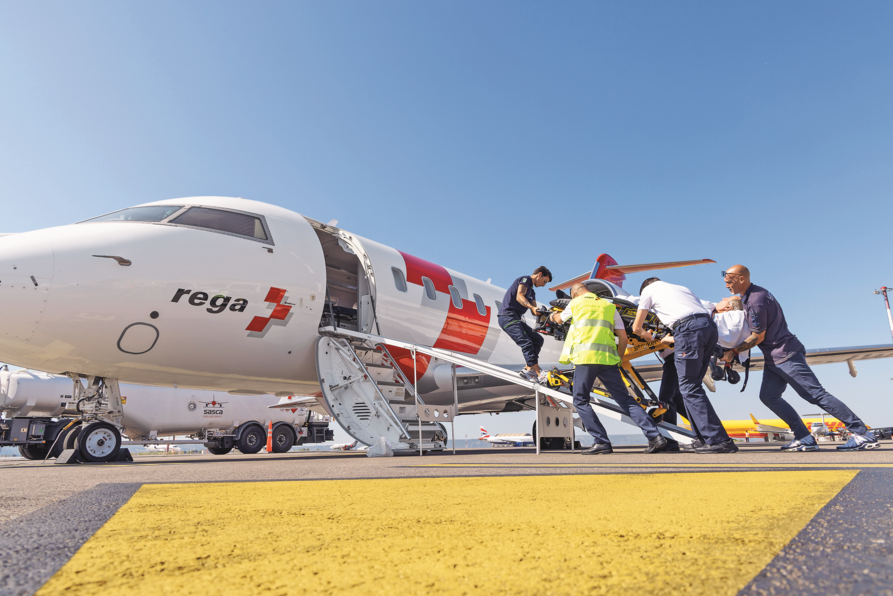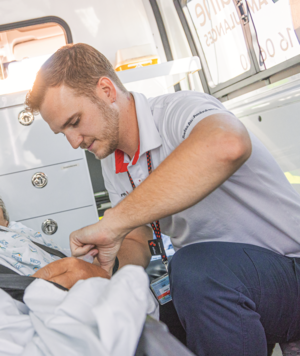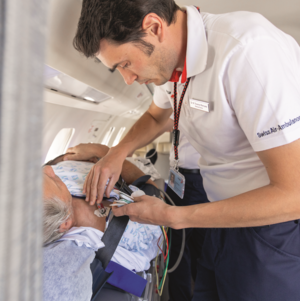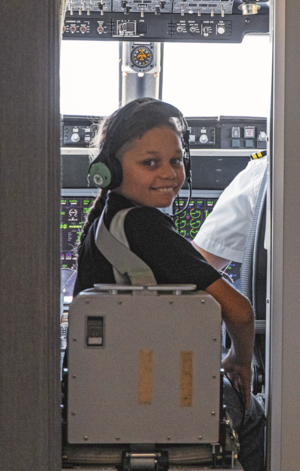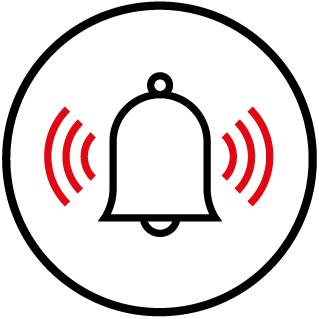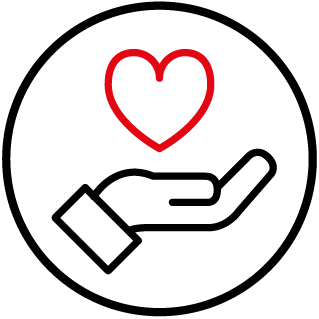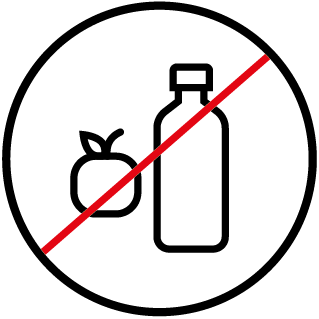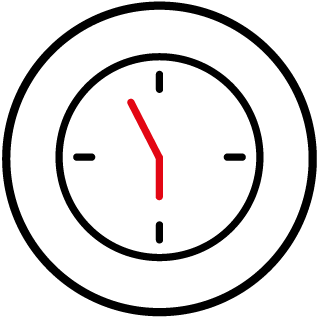Fifteen minutes later, Franz is strapped in to one of the two intensive-care beds in the Rega jet. His ten year-old son Gabriel sits close by, between the two pilots, on the jump seat and wears a headset. Captain Marc Bühlmann, also a father, learned that the twins are aviation fans and offered them the special seat near the cockpit for take-off and landing. His eyes shining, Gabriel tries to make eye contact with his mother, who is sitting at the rear of the cabin with his brother Elijah, and gives her a thumbs-up sign. “I can even hear the aircraft radio!” It seems that the boy can forget the difficult situation at least for a few moments. “Sometimes it’s the little things that help us improve the situation for the family”, says Marc Bühlmann. The flight proceeds without any problems. Franz tells the crew that he never expected to suffer a stroke at age 63: “I lead a healthy life and am active.” Returning home now gives him a feeling of security that he didn't have in the hospital far from home.
Shortly before landing in Bern, the whole family looks out of the aircraft windows on the left-hand side: They can see where they live in the Three Lakes Region. Their immense relief at being back home is palpable. Just after noon, co-pilot Mathieu Wanner lands the Rega jet gently on the runway of Bern-Belp airport. The ambulance that will drive Franz and his family to the Inselspital is already waiting at the gate. Meanwhile, Lori is still very impressed by the “Rega system” which she didn’t know, and when saying goodbye, thanks the Rega crew for the flight coordinators having organised everything – from the taxi in France to the airport through arranging for the luggage to notifying the hospital and the transport to the Inselspital. “I didn’t have to worry about anything, that was a huge relief.”
A few weeks later, Franz can go home from the hospital. After a stay at a rehab clinic and with the support of outpatient therapy, he has to find his way back to “normal” life – at home in the Three Lakes Region, in the bosom of his family.
